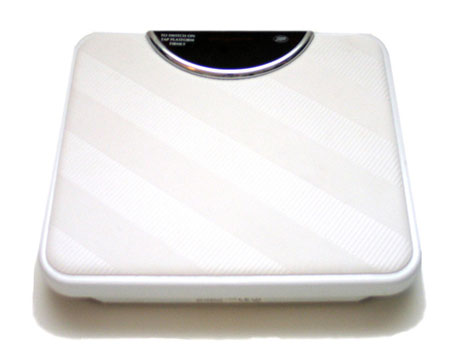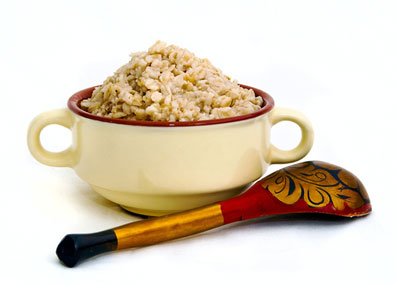7 Myths of Dieting
Losing weight can be a challenging goal, but there are strategies that can improve your chances.
Unfortunately, there are a lot of often-repeated ideas about dieting that just aren’t true. The good thing about exposing these myths is that the truth can make weight loss much easier.
Here are 7 myths about dieting that have been debunked.
1ST Myth: Weight Loss is Steady
When dieting, it might be confusing to see changes on the scale that happen just overnight. You might think you’re dieting correctly, but you then suddenly see that you’ve actually gained weight unexpectedly.
This is normal.
It happens because weight can fluctuate on many factors including:

- Water weight: Humans can store over 20 pounds of pure water weight. This can be influenced by how much sodium you get in your diet, how hydrated you are, and how many carbohydrates you eat. In fact, in one day you can lose more than 3 pounds of just water.
- Sleep: When we don’t get enough sleep the body starts to reduce levels of leptin. Leptin is the hunger blocking hormone that signals the brain to stop eating. Sleep deprivation can also produce the stress hormone cortisol, which tells the body to save energy, which then leads to weight gain.
So if you suddenly start drinking less water, eating more sodium or carbohydrates, you might have an increase in weight that’s not fat, but water.
Also, if you’re stressed out or not sleeping well you’ll make it harder to lose weight by negatively changing your body’s biology.
2nd Myth: Calories Are All the Same
A calorie is what’s known as a unit of energy, meaning the body uses it to produce energy.
However, how the body uses the kinds of macronutrients that supply calories does affect your weight. In fact, the International, Journal for the Study of Obesity ran a study that showed:
“low-carbohydrate/high-protein diets are more effective… in reducing weight and cardiovascular disease”
This study shows how eating high amounts of protein is a lot more beneficial for weight loss than other macronutrients.
3rd Myth: You Have to Starve
It seems simple to see how eating fewer calories will always result in weight loss. While this is true, you don’t have to feel like you’re starving yourself to lose weight. This can derail your chances of having steady weight loss.
American Psychologist published a study that followed people on 1,200-calorie diets for 4 to 5 years. Once off the diet, people quickly regained all the weight they lost.It’s much easier and better for you to just eat a sensible amount of calories while improving daily lifestyle choices.
4th Myth: Fat Makes you Fat
Getting rid of fats is not the best way to lose weight.
Though it’s believed that eating fats will add to body weight, a sensible amount of fats are good for weight loss. Take for example monounsaturated fats, the Mayo Clinic mentions how this fat:
“may also benefit insulin levels and blood sugar control”
Fats are essential for processing vitamins and nutrients. That’s why vitamins A, D, E, and K are known as fat-soluble vitamins. Eating fats helps the body process these ingredients so they’re better utilized by the body.
Fats also raise good cholesterol to protect the heart, and a study by the British Journal of Nutrition confirmed that healthy fats lower abdominal fat.
5th Myth: Don’t Eat At Night
While night eaters may overeat if they’re not careful, the body processes calories the same no matter what time it is.
The US Department of Agriculture’s Weight Control group has this to say:
“it is what and how much you eat… that determines whether you gain, lose, or maintain your weight”
“it does not matter what time of day you eat”
So there’s no cut off time for when you should eat your meals. Any calories you eat at night essentially roll over as units of energy for the next day.
6th Myth: A Scale Can Determine Health
Looking at how your weight changes on a daily basis isn’t the best indicator if you’re obese or not.
Muscle weighs more than fat, so if you’re suddenly exercising more you might see yourself actually gaining weight, but not fat. 
One tool often used is the BMI, or body mass index. In this measuring system you find your height and weight, and you’re given a way to determine if you’re obese or not.
The problem with BMI is that athletes are often considered greatly obese on this scale, even though they’re low in body fat. A better way to track how much fat you’ve lost is by using calipers to measure current body fat.
Other issues with the scale include when you weigh yourself. People generally weight more at the end of the day when their stomachs are full of food and water. That’s why it’s advised to weight yourself after you awake. Otherwise your weight might jump to over 3 pounds in just a few hours.
7th Myth: Carbohydrates Need to Be Avoided
A sensible amount of carbohydrates from complex food sources are beneficial for feeding the body much needed glycogen.
The body readily uses this form of energy, and endurance athletes rely on it to improve their overall fitness demands. 
It’s also important for regulating many functions. According to the science book Biochemistry:
“glucose is virtually the only fuel used by the brain”
“a good source of energy for sudden, strenuous activity”
Eating carbohydrates in excess should be avoided, but getting this macronutrient from rich sources and sparingly is essential for good health.
Iowa State University also ran a study showing how when the body does not have enough carbohydrates, that protein will be converted into a fuel source. This can reduce the overall benefits of the protein you eat. This same study showed that small amounts of carbohydrates were needed for proper fat metabolism.
Conclusion:
Diet myths are common and they include the idea that calories are created equal, carbohydrates, fats and eating at night is bad, you’re going to starve on a diet, increases or decreases on the scale are important, and much more.
The truth is that weight loss can be had with just a few adjustments.